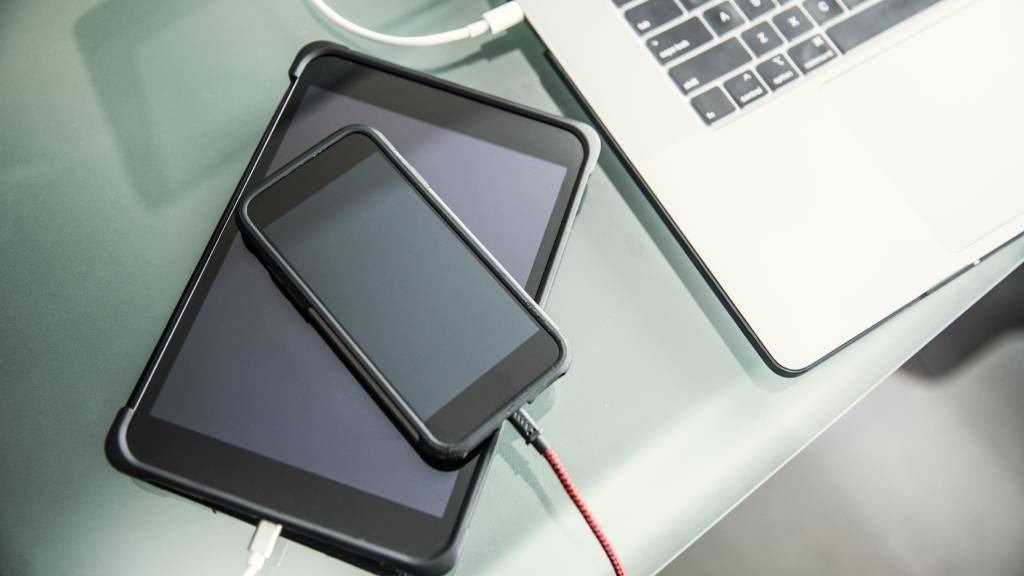How to switch off from your devices to get some downtime

With more of our lives shifting online, screen time is becoming an increasingly complex issue. According to 2021 Research conducted by reviews.org, Australians already spend nearly one-third of our waking hours on our smartphones (5.5 hours daily average), and that’s not even including those who have office jobs that require them to sit in front of screens all day.
With excessive screen time contributing to poorer mental and physical health, now is the perfect time to change your habits and forge a better relationship with your devices. So why not take a digital detox?
How to monitor your technology usage
The good news is that technology has also made it increasingly easy to minimise our daily usage. You can take advantage of user-friendly apps that capture your activity data and then provide a report that breaks down how long you are spending on your devices each week.
All the major tech providers offer this service – from Apple to Google to Microsoft – so you can set it up on your device and then see exactly how much screen time you are getting. Once you can see the full picture, you can take healthy steps towards change.
How to limit your time spent on apps
Some people who end up taking a digital detox say it’s because they are spending too much time on social media – often jumping on Instagram or TikTok whenever they have a few spare moments.
Quitting social media outright might be an extreme solution. Instead, ease into this transition by either setting limits on your social media usage – there are apps that can lock specific apps or your entire device when you hit a predefined time limit – or culling the apps that aren’t essential to your daily wellbeing.
Digital detox: 10 tips for getting started
A digital detox is a big step, especially if you spend most of your day glued to a screen. Being away from your smartphone or laptop can be distressing at first, which is why it’s good to have a few different strategies, so you don’t relapse.
Since everyone’s situation is different, here are 10 suggestions for managing your own digital detox:
- Create a ‘digital detox schedule’ that outlines when you can and can’t use your device. Start small and ramp up your offline time.
- Swap your phone for a book and set a minimum amount of time to stick with it.
- Resist the urge to jump online as soon as you wake up.
- Engage in more physical activities, especially after work when you might usually sit on the couch and scroll for hours.
- Keep your phone out of reach – especially when you are doing a physical activity, reading a book or spending time with friends and family.
- Switch your device to airplane mode or mute notifications so you aren’t distracted throughout the day.
- Practise mindfulness and train the feeling of urgency.
- Delete unnecessary apps and deactivate profiles to ensure you don’t fall back into bad habits.
- Set internet-free hours and designate areas of your house where there are no devices allowed (e.g. the bedroom).
- Instead of spending your evenings on your phone, throw yourself into a new hobby or even start a side hustle.
Benefits of taking a digital detox
Like anything you try to quit, the first few days are bound to be challenging. Hopefully, the strategies outlined above will help you get through those initial struggles so you can start to reap the benefits of a more digitally healthy mindset. Here are some common outcomes that people experience after a digital detox:
- Lower stress levels: Overloading your brain with technology can cause anxiety and stress, especially when your body has adapted to release endorphins when you hear the ‘ping’ of a new message or push notification. You might be surprised by how quickly your body readjusts after a few days with your devices on mute.
- Increased productivity: Whether you decide to go out for a walk every day, spend more time with family and friends, or dive into a non-digital hobby, less technology can result in less stress, which could lead to greater productivity.
- Better sleep quality: Studies have suggested a link between an abundance of screen time and poor sleeping habits among children and adolescents. So, by reversing your reliance on devices, you can get back into a healthier pattern of restful, restorative sleep.
- Improved relationships: If you’ve found that your increased screen time has coincided with less time spent with friends and loved ones, it’s likely not a coincidence. Spending fewer hours every day on your devices can free you up to be around the people you care about most.
- Mental wellness: Did you know that a study has revealed a potential link between negative emotions and notifications? By taking the time to digitally detox, you can actually improve your mental wellbeing and replace the looming ‘fear of missing out’ with more positive activities and interactions.
It’s a whole new world out there
Weaning yourself off your devices can be a challenging but ultimately rewarding mission, so why not use this period to reflect on what’s most important to you? While you’re at it, you could consider if the future you’re building for your loved ones is protected with life insurance.
Guardian Insurance offers straightforward life insurance products that are easy to apply for, so you can get covered with as little delay as possible. Request a quote today.
15 Dec 2022